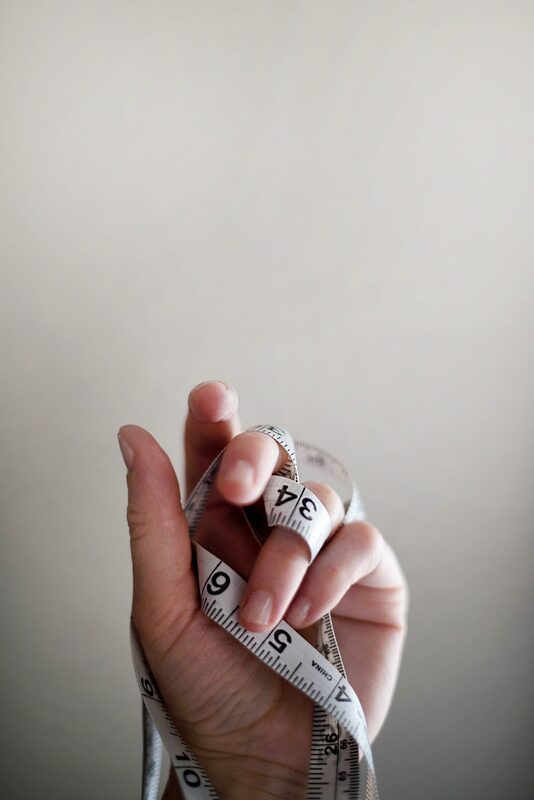|
By Marissa Bowsfield, M.A, CBT Therapist and member of the Canadian Sex Research Forum Negative Body Image is Common
With the summer months upon us and the warmer weather beckoning us outside, many of us may have anxious thoughts and worries about our bodies. Not about our body’s important functions – but rather how it looks. We may have thoughts like, “I’m not in good enough shape” or “I don’t want people to see my stomach at the beach” or even, “I’m disgusting”. Body image is a psychological characteristic that reflects an individual’s satisfaction with their body and the emotions that are experienced in relation to their body. We all have a sense of body image and it can range from very negative to very positive. Unfortunately, negative body image is widespread and does not discriminate. Although negative body image has historically been considered a “women’s” issue, research conducted in more recent years suggests that women, men, and non-binary or transgender individuals all experience negative body image. Furthermore, people of all different shapes, sizes, and body compositions can experience significant issues with body image. Generally, negative body image is theorized to arise from narrow, socially prescribed body ideals for women (e.g., historically this has been the “thin ideal” and more recently it is becoming more of a “fit ideal” or “toned ideal”, although thinness is still privileged) and men (e.g., muscular, lean). When people endorse these ideals and compare their own bodies against them, they are likely to experience a relatively negative body image. Negative Body Image Elicits Anxiety Anticipating summer and seeing all of those “Get Your Summer Body!” headlines popping up may increase our dissatisfaction and worry about our bodies. They cause us to focus on, and evaluate, our physical appearance against unrealistic body ideals. Indeed, people tend to be the most worried about their bodies, and experience associated negative emotions, like shame, in situations wherein the body is particularly salient or is “on display”. Given this reality, there are many situations that have absolutely nothing to do with summer or swimsuits that may cause people to experience anxious thoughts and negative emotions about their bodies. A prime example that likely comes to mind is partnered sexual activity, which is obviously not just a summer activity! Sexual activity is inherently focused on the body and requires a certain level of body exposure to another person or persons. Thus, it may trigger very high levels of anxiety, especially for people who experience negative body image. What might this mean for our sexual relationships? Body Image and Sexual Relationships Recent research suggests that people who have a negative body image may be especially anxious during sex and this anxiety may manifest in different ways to interfere with their sexual enjoyment. First, they may find that their mind is preoccupied with thoughts about their body and what their partner might think of it during sex – so much so, that it is difficult to enjoy the experience. Second, people who have a negative body image may want to keep certain pieces of clothing on during sex or only have sex with the lights off, they may not want their partner to touch them in specific places, or they may be inclined to avoid sex altogether. These strategies are designed to manage the anxiety, but instead, they serve to prevent people from fully enjoying sexual activity by interfering with sexual arousal, impeding orgasm, or simply taking focus away from the pleasurable sensations that occur during sex. Importantly, the anxiety that people experience during sex as a result of their negative body image also has negative consequences for partners. If we think about how anxiety can manifest during sex – either in preoccupied thoughts about the body, behaviours to limit body exposure, or both – we can imagine how partners may be affected. If an individual is unwilling to engage in certain behaviours or to allow a partner to see their body (with the lights on!) during sex, or they simply seem distracted, the partner may have a rather unfulfilling sexual experience. Final Thoughts and Tips for Improving Body Image This may seem like a discouraging situation. However, we can look at it another way: What might be relatively simple and effective ways for people to improve their own and their partner’s sex lives? Well, good first steps are to work to improve body image, to be less critical of ourselves and our partners, and to manage anxiety during sex (e.g., using mindfulness techniques). Improving these areas may lead to more pleasurable, fun, and satisfying sexual experiences where the focus is on sensation, intimacy, and mutual enjoyment, rather than on worry over physical imperfections. Some tips for improving body image include:
Marissa Bowsfield, M.A. is a senior Doctoral Student in the Clinical Psychology Program at Simon Fraser University (SFU) where she is training to become a Registered Psychologist. She completed her B.A. (Hons.) at SFU in 2014 and her M.A. (Clinical Psychology) in 2017, and received the Canadian Psychological Association's Award for Academic Excellence. She is also a recipient of the Social Sciences and Humanities Research Council of Canada’s Graduate Scholarship and conducts research on intimate relationships and human sexuality, including issues around body image in sexual relationships. Reach out through our contact page for more information or to book an appointment. Comments are closed.
|
PH&S ClinicEnhancing psychological health, wellness and resilience Archives
July 2024
Mental Health
All
|



 RSS Feed
RSS Feed

